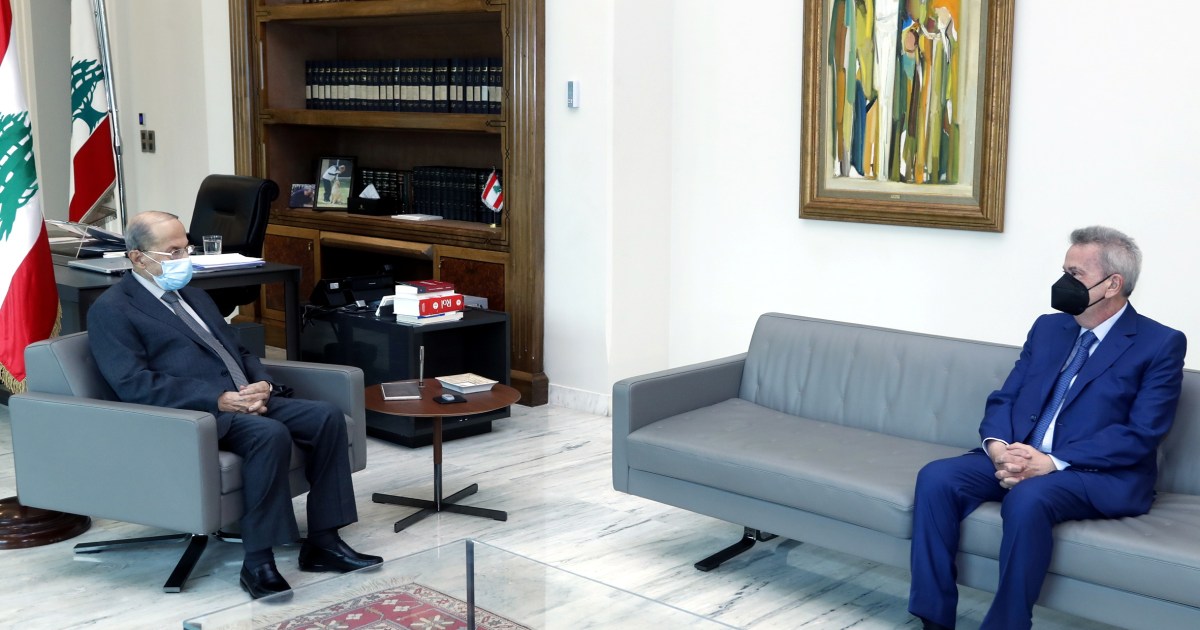The Lebanese presidency announced today, Thursday, that President Michel Aoun summoned the Governor of the Central Bank, Riad Salameh, hours after the bank announced a decision to effectively end subsidies to import fuel, which immediately led to protests in several regions of the country.
And the Central Bank said in a statement issued last night that, starting today, it will secure the necessary funds to import fuels, according to the exchange rate of the dollar against the pound in the local market, which currently stands at more than 20,000 pounds on the black market, compared to the official price of nearly 4 thousand pounds.
The Minister of Energy and Water in the Lebanese caretaker government, Raymond Ghajar, said that the Governor of the Central Bank, Riad Salameh, informed the Higher Defense Council during its meeting at the presidential palace that the Central Bank is no longer able to provide financial support for the purchase of fuels, according to the official exchange rate of the dollar.
This decision means that fuel prices will increase sharply, which will worsen the living conditions in this country, which is witnessing multiple crises.
According to a study prepared by a private Lebanese company, in light of this decision, the price of a can of gasoline will rise from about 75,000 pounds to 336,000 pounds, at a time when the minimum wage in Lebanon is 675,000 pounds.
As for the price of a diesel cylinder, it will rise from 57 thousand pounds to about 279,000 pounds, according to the same study.
The Banque du Liban was supporting the import of fuel through a mechanism whereby it provides 85% of the total value of the import cost, according to the official exchange rate, while importers pay the rest according to the black market exchange rate.
It is noteworthy that fuel subsidies, which cost $3 billion annually, contributed, among other things, to the depletion of the foreign exchange reserves of the Central Bank of Lebanon, which declined from more than $40 billion in 2016 to $15 billion last March.
It is also noted that the Lebanese currency lost more than 90% of its value in less than two years, while the annual inflation jumped to about 158% last March from 10% in January 2020.
protests and criticism
Following the announcement of the Central Bank's decision to stop fuel subsidies, protesters blocked the Tel Nahas-Kfar Kila road in southern Lebanon, according to the Lebanese News Agency.
In the north, demonstrators gathered in front of the palace of government-former Najib Mikati in the port area of Tripoli, to protest against the deteriorating economic and living conditions.
The Lebanese Agency stated that the protesters cut off the main road in the area and lit a tree in the courtyard of the Mikati Palace, and chanted slogans against the authority, amid a heavy presence of the Lebanese army.
For his part, former Lebanese Foreign Minister Gebran Bassil considered the decision to stop subsidizing fuel imports as a "conspiracy."
For weeks, the Lebanese have been waiting in long queues for several hours in order to refuel, and recently, quarrels near gas stations resulted in the death of 3 people.
In this context, protesters stormed an electric power production plant in the Zahrani area in southern Lebanon to protest against the power outage.
The soldiers evacuated the lab from the protesters at one of its entrances.
Lebanon witnesses power outages of more than 20 hours a day due to the great shortage of fuel for energy production.
Caretaker Energy Minister Raymond Ghajar said that Lebanon's need for electricity amounts to about 3,000 megawatts, while the production capacity today does not exceed 750 megawatts.

